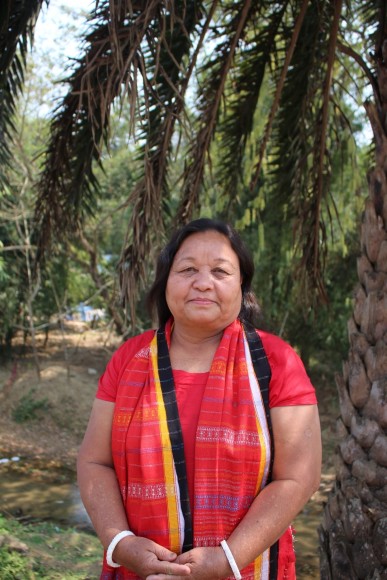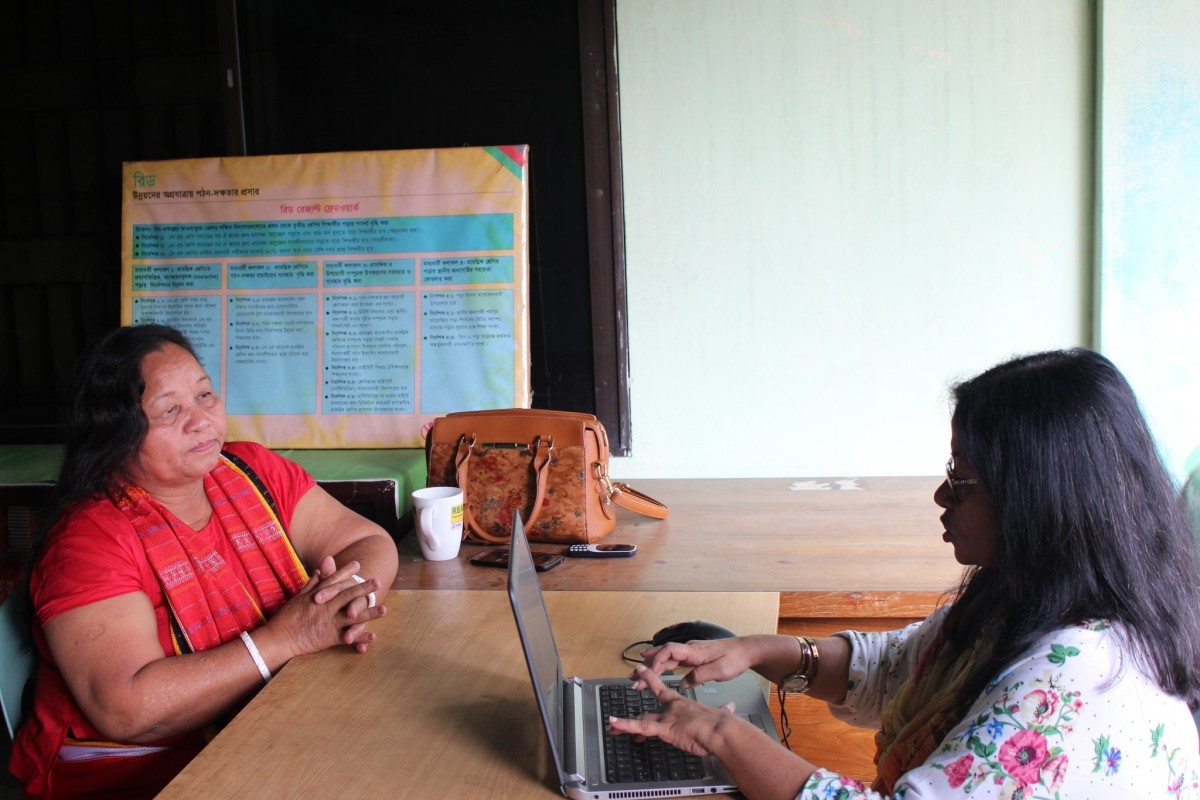Ms Shefalika Tripura
Ms Shefalika Tripura is the executive director of the Khagrapur Mahila Kalyan Samity – Association for wellbeing of women in Khagrapur (KMKS) organisation in the Chittagong Hill Tracts in Bangladesh.

KMKS is a women-led, women’s rights organisation that works with Simavi in the Our Lives, Our Health, Our Futures programme funded by the European Union.
The Chittagong Hill Tracts is home to at least 11 different indigenous groups that differ distinctly in language, culture and religion from the Bengali community that forms the majority in Bangladesh. In this area, “women are not considered a human being by many men and leaders. Wife battering is common among all indigenous groups because they believe men have the divine right to regulate women. Women are not part of the decision making“ according to Ms Tripura.
30 years ago, Ms Tripura started working on economic empowerment, hoping this would change women’s position in society as well. She developed a small cooperative savings system for women, and started to put pressure on authorities. She got support to address the problems of girls in schools; provided education support to some families and sensitised schools so that they would create space for indigenous girls. She counselled vulnerable women and helped rape victims to report. “I started to provide legal support to them; such as securing a lawyer for them and following-up on cases.”
Ms Tripura also worked on providing psychosocial support for women to heal and regain control over their lives. Women in the Hill Tracts are vulnerable to violence and their freedom of movement is restricted as a result. Unfortunately most of the cases are unreported and a majority of women choose not to pursue any legal action, due to fear of stigmatisation and trauma.
“I started my journey in 1988. Women in this district are very vulnerable. Their rights are not protected at all. It used to make me sad. I felt if they get peace, I also would get peace in my life.”
One of the areas in which gender discrimination is still very visible, is in sanitation and health. “Women from this area are not aware about menstrual hygiene management. They do not use pads or cloth. Menstruating women are not allowed to cook, to touch anything, to stay in the same bed with their husband, to pray, to eat with family members, to take a bath. But it’s not just other people: women also call themselves impure or unholy during menstruation. “
Ms Tripura adds: ”Fetching water, cleaning, washing and cooking is a woman’s responsibility. She has to do these things without questioning. Actually, women do not question it themselves either.” But these tasks are not without risk. “Women have to fetch water from waterfalls or wells by travelling from up to 2/3 kilometres every day. Women and girls are often being kidnapped on the way, raped or face harassments. They do not go to the police station, since most of the times it has no result or backfires on them.”

The Our Health, Our Lives, Our Futures programme is focused on challenging social norms, stereotypes and patterns within the household and communities. Girls safety, priorities and needs are at the centre.
Ms Tripura: “Our main focus is empowerment of women and girls, and creating a positive environment to support them. We create a safe space for them where they will learn about their rights to live without violence and discrimination, to have control over their own body, get health services and manage menstruation in a hygienic way. This project will also create boldness in girls’ hearts. They will be able to decide when and who they will marry, whether or not they want to get pregnant, and if so: when to have children.”
But you can’t create change without the community. “First, we need to make the men in the family, society and institutions believe that women should be respected and their dignity should not be hurt. Parents, teachers and community members will learn about women’s rights through this programme, so that they can play a role in supporting women to live without violence and discrimination. If we can bring change in one village, it will be an example to other villages.”

